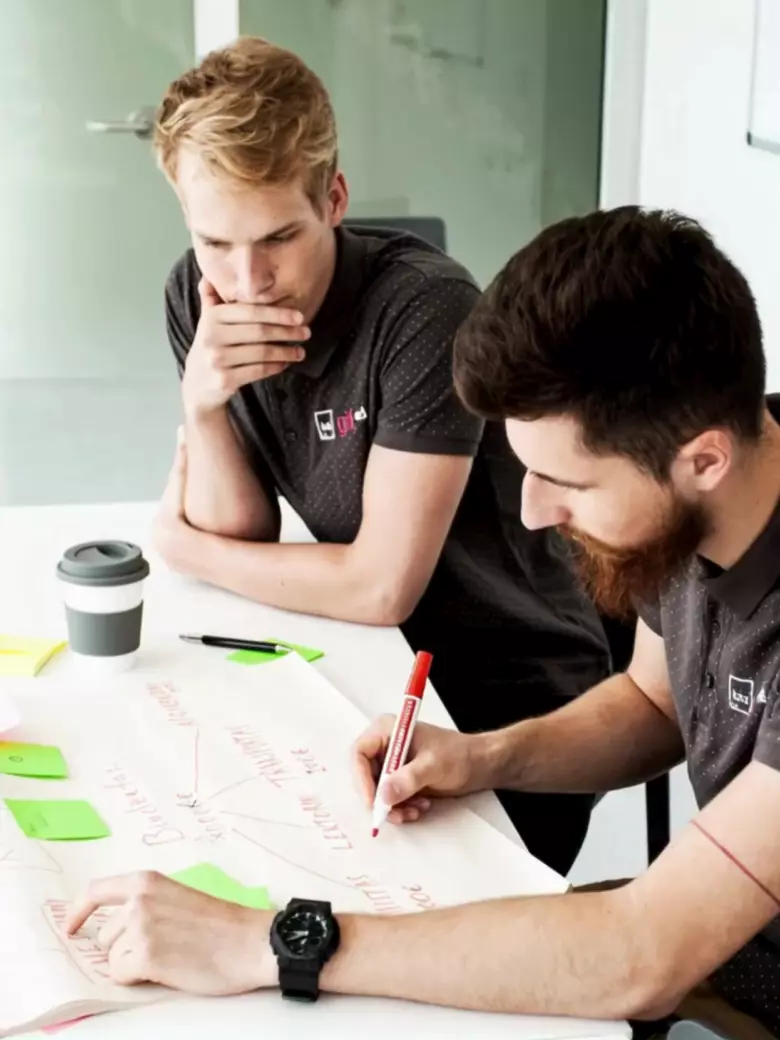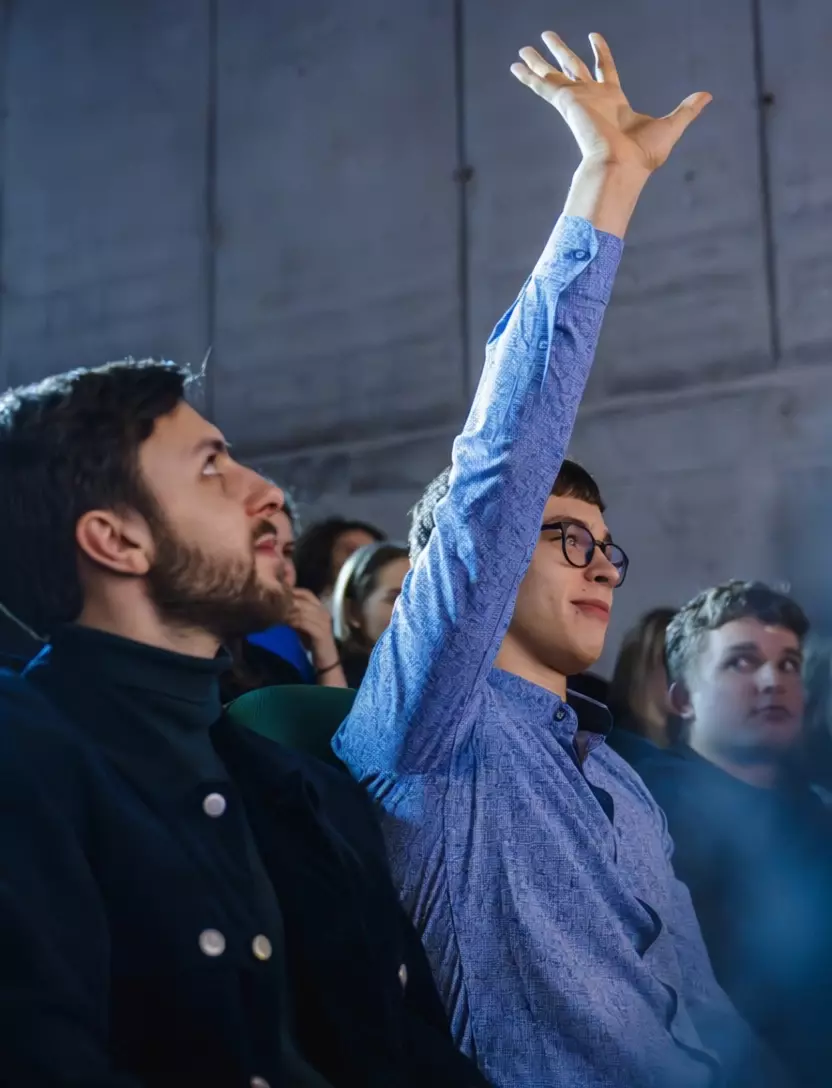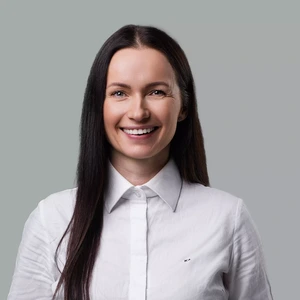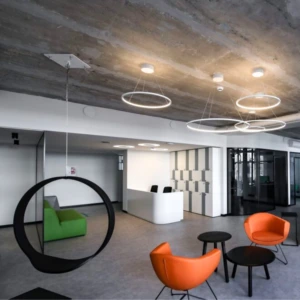The programme is only conducted in Lithuanian language. Entry requirements for this particular programme can be found in the programme description provided in Lithuanian language.
in Lithuanian
Create education that changes the world
These studies develop educators who not only adapt to changing teaching and learning needs but also create innovative educational solutions themselves. You’ll learn how to integrate technology into education, design innovative teaching methods and develop educational systems that meet the needs of diverse learning communities. Graduates of the Educational Systems programme become leaders of educational change, transforming existing teaching practices and introducing new educational standards.

The programme integrates education, informatics and management, providing a broad interdisciplinary education. It is curated by experienced professionals in the field, and EdTech Lithuania and Elicėjus specialists contribute to the development of innovative projects.

Some of the classes will take place in KTU’s inspiring learning spaces such as EDU_Lab and M-Lab. You will work in teams, use design thinking, analyse case studies and solve practical tasks that will stimulate creativity, and innovation, thus gaining valuable knowledge in real situations.

Students will develop educational projects, learning platforms and educational scenarios relevant to different fields. Interdisciplinary educational projects are implemented in cooperation with teachers from different faculties.

The programme offers 18 credits of personalised modules tailored to your interests, including a variety of subjects offered by the University, such as an audiovisual lab, creative experience or product development projects, creating a unique and flexible learning experience that fits your goals and vocation.
This programme inspires you to become an educator of the future – one who creates modern learning environments, nurtures creative minds, and drives societal progress.
As a graduate, you will have the opportunity to develop innovative educational solutions, manage learning processes, and contribute to advancements in education. You will gain expertise in designing educational systems, utilizing the latest technologies, and fostering creativity and innovation in learning.
Here are some of the careers you can pursue after your studies:
Designs and implements learning programmes and educational projects that meet today’s educational needs and are adapted to different levels of learning.
Advises educational institutions and organisations to help them innovate, improve learning methods and develop innovative and relevant educational projects.
Develops and implements strategies for digital learning solutions in educational institutions, helping to develop effective distance and blended learning programmes using innovative technologies and advanced teaching methods.
| Module name | Credits | Method of organisation |
|---|
| Application of Cognitive Neuroscience | 3 | Blended learning |
| General and Inclusive Education | 6 | On-campus learning |
| Informatics 1 | 6 | On-campus learning |
| Introduction to Data Analysis | 6 | On-campus learning |
| Introduction to Educational Systems | 9 | On-campus learning |
| Module name | Credits | Method of organisation |
|---|
| Developmental Psychology | 6 | Blended learning |
| Management | 6 | On-campus learning |
| Public Programmes and Projects | 6 | Blended learning |
| Media Philosophy | 6 | Blended learning |
| Sustainable Development | 6 | On-campus learning |
| Academic and Technical Communication in English (Level C1) | 6 | On-campus learning |
| Academic and Technical Communication in French (Level C1) | 6 | On-campus learning |
| Academic and Technical Communication in German (Level C1) | 6 | On-campus learning |
| Module name | Credits | Method of organisation |
|---|
| Coaching | 3 | Distance learning |
| Ethics of Artificial Intelligence | 3 | Blended learning |
| Fundamentals of Marketing | 6 | On-campus learning |
| General Neuropsychology | 6 | Blended learning |
| Quantitative Social Research Methods | 6 | On-campus learning |
| Visual Design | 6 | On-campus learning |
| Module name | Credits | Method of organisation |
|---|
| Educational Process Design | 6 | On-campus learning |
| Image Syntax | 6 | On-campus learning |
| Innovation Management | 6 | On-campus learning |
| Qualitative Social Research Methods | 6 | On-campus learning |
| Teaching and Learning | 6 | On-campus learning |
| Module name | Credits | Method of organisation |
|---|
| Audiovisual Laboratory and Communication Design | 6 | On-campus learning |
| Education in a Virtual Environment | 6 | On-campus learning |
| Educational Technology Project | 6 | On-campus learning |
| Social Networks and Media Analysis | 6 | On-campus learning |
| Programming in Python | 6 | On-campus learning |
| Web Content Creation and Publishing | 6 | On-campus learning |
| Module name | Credits | Method of organisation |
|---|
| Educational Innovations | 6 | On-campus learning |
| Product Development Project | 12 | On-campus learning |
| Psychology of Groups and Effective Teamwork | 6 | On-campus learning |
| Optional Subjects 2026 | 6 |
| Module name | Credits | Method of organisation |
|---|
| Creative Experience Project | 12 | On-campus learning |
| Education in Community | 6 | On-campus learning |
| Optional Subjects 2026 | 12 |
| Module name | Credits | Method of organisation |
|---|
| Bachelor’s Degree Final Project | 15 | On-campus learning |
| Professional Internship | 15 | On-campus learning |
The programme is only conducted in Lithuanian language. Entry requirements for this particular programme can be found in the programme description provided in Lithuanian language.
in Lithuanian

KTU studies stand out from other as they combine different fields of science and aim to educate specialists who can not only understand technologies but also apply them in education. This synergy allows students to acquire not only theoretical but also practical competencies. KTU graduates create new learning experiences, work in the education sector and shape its direction in a smart, creative and strategic way.

KTU is distinguished by its strong academic base, innovative approach to studies and close cooperation with the business and technology sector. The university emphasises interdisciplinary learning, which allows students to acquire not only the knowledge required for their specialty, but also a broader range of skills that are important in today’s job market.
The language of instruction for this programme is Lithuanian only, which means that all teaching, coursework and examinations are conducted in this language.
A degree in Education opens up career opportunities as a non-formal educator, cultural education programme developer, learning content developer, online platform developer, education centre manager or education project developer.
The Educational Systems programme is the perfect choice for those who want to gain in-depth knowledge of the design, management and technological solutions of educational systems. This unique programme in Lithuania combines education and management, equipping students with the skills to design and implement educational innovations in a variety of areas, from traditional teaching to digital learning platforms. Graduates acquire both theoretical and practical skills to successfully adapt to the ever-changing educational environment.

Talk to us, study with us:
K. Donelaičio St. 73, LT-44249 Kaunas
phone +370 679 44 555
email studijos@ktu.lt
Faculty of Social Sciences, Arts and Humanities
I Chamber
A. Mickevičiaus St. 37, LT- 44244 Kaunas
email shmmf@ktu.lt
 virtual tour
virtual tour